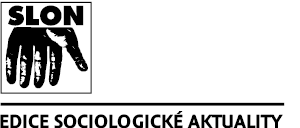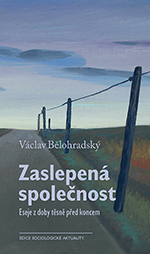
Jsme dnes všichni vědečtí experti?
[Are We All Scientific Experts Now?]
subjects:
sociology
series:
SLON – Sociological News
paperback, 126 pp., 1. edition
translation: Kubrichtová, Gisela
published: september 2024
ISBN: 978-80-246-5659-5
recommended price: 250 czk
summary
In this popular science book, Harry Collins, professor emeritus at Cardiff University and classical British “sociologist of science,” discusses various types of expertise that can be found in contemporary democratic societies. By making this distinction, he answers the question of whether we can all legitimately consider ourselves (scientific) experts today. The answer is that we cannot, at least not experts of the same kind. Collins’s book can be seen as a defense of science, or rather its ability to manifest the principles of epistemological particularism at a time when the authority of science is undermined by multiple social mechanisms, but also by its own scientific failures. This may seem almost paradoxical at first glance, as it is the sociology of science, or more precisely the sociology of scientific knowledge, that is perceived as an academic discipline that has contributed significantly to the undermining of the authority of science. For this reason, Collins’s analysis of expertise can naturally be carried out, among other things, by interpreting the principles of the sociology of scientific knowledge and some of its findings in research areas such as the AIDS pandemic, vaccine skepticism, the detection of gravitational waves, the study of climate change, etc. Thus, this is an opportunity for Collins to defend the sociology of scientific knowledge as a discipline that is not anti-scientific, even though since its founding in the 1970s, its studies have been critical of the idealized image of science.
The book is easy to read, assuming no special knowledge of the academic disciplines from which it draws or to which it refers. It also has a reasonable scope and a clear structure (mostly linear presentation divided into four main sections). In the Czech context, there are two target audiences: readers interested in important contemporary social issues – ranging from the AIDS pandemic to climate change in relation to the form and role of scientific knowledge – and readers-students of social sciences for whom the book serves as an introduction to the sociology of scientific knowledge.
newest releases in the series
